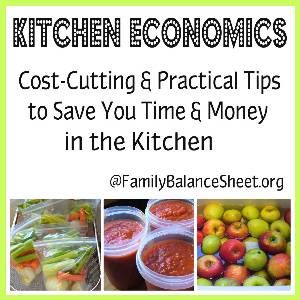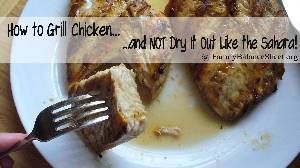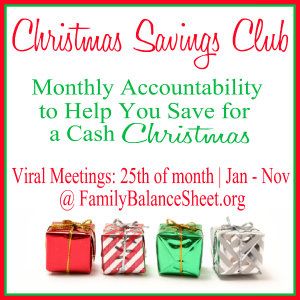
Yes, risk taking is inherently failure-prone. Otherwise, it would be called sure-thing-taking. ~ Tim McMahan
Why not go out on a limb? Isn’t that where all the fruit is? ~ Frank ScullyI don’t consider myself a very risky person. Sky-diving or bungee jumping do not really appeal to me. But I have taken on a bit of a risk this summer and it has to do with our mortgage.
I wrote last week about how buying a home within our means was our wisest money decision. I also mentioned in the post that we have refinanced several times and that is where my risk comes into this story.
In May 2010, I saw an ad in the newspaper for a bank offering a Home Equity Line of Credit (HELOC) with an interest rate of 2.74%. The fine print stated the loan rate would be prime rate less .51% and prime was at 3.25%. The fee would be $25 a year, but waived the first year.
A HELOC is a line of credit that taps into the equity that you have accrued on your home and it uses one’s home as collateral for the loan. The interest rates on HELOCs are variable and are based on a prime rate that is set by the Federal Reserve. That rate is currently at 3.25%. It has been at 3.25% since December 2008. Many analysts believed it would go up by the end of this year, but after last week’s meeting, the Federal Reserve announced that will not happen.
Wow, my wheels were turning. What if I transferred my current mortgage, which was at a fixed rate of 4.99%, to the HELOC? Our home loan was about 40% of the value of our home, so we had the equity. Fortunately, we bought our home in 2001 right before home values rose dramatically and we live in a neighborhood where home prices did not tank when the housing market fell recently.
The history of prime rate changes are in small increments. So the prime rate has to move up to 5.50% for it to equal my prior rate of 4.99% with my .51% reduction. I’m going to take a chance that based on history the rate is not going to jump up to 5.50% quickly; it will be done slowly. Some other things have to happen before the prime rate goes up, per Primerate.wsjprimerate.us,
“when the Fed is satisfied that the US economy is not just growing, but growing sustainably, and at pace that will prompt companies to add new and previously laidoff workers to their payrolls. Before the Fed will even consider raising the fed funds target rate, there will have to be a whole lot fewer than 15 million unemployed people in the United States, and threat of deflation will have to have been eliminated.”Do you see any indication that any of that is happening yet or any time soon?
We are going to be aggressive and pay off as much as we can at the 2.74%. I’m keeping my eyes and ears open for rate change information and I have even added the Prime Rate website to my RSS reader. As the rate goes up, I will re-evaluate our options.
I do understand that home loan rates are at an all time low right now, but there are usually fees that go with those loans and those fees need to be assessed to see if the loan is worth refinancing. The fees with this HELOC promotion were minimal and even waived the first year.
By buying a home below our means and refinancing several times over the years, we have been able to aggressively pay down our mortgage without feeling too much pain. Our goal is to pay off the loan quickly with in the next 5 years and pay as little interest as possible.
Converting a home loan to a HELOC is not for everyone and I am not suggesting to anyone to do it. I am taking on a risk that I understand. The prime rate will go up, but the economy is still tough and I don’t think they are going to raise rates rapidly, but that is just my humble opinion and I am willing to take this risk in an effort to save quite a bit of money over the term of the loan.
How much risk can you tolerate when it comes to your personal finances? What has been your riskiest money decision? Let us know in the comments.
Thanks for reading FamilyBalanceSheet. If you would like to have FREE updates of FBS delivered to your email, please click here.
This post is linked to:
- Frugal Friday at Life as Mom


































I just turned 41 and I still rent. Was tempted to buy a home during the boom, via an ALT-A loan, but I decided that I didn't have enough cash in the bank to do it. I'm very confident that I made the right choice.
ReplyDeleteBuying a home isn't for everyone. To quote housing expert Robert Shiller "From 1890 through 1990, the return on residential real estate was just about zero after inflation."
You may regret transferring your mortgage to a HELOC, because with all the money sloshing around in the economy, the Fed may raise rates a lot when they begin their next cycle of rate hikes. Interesting to note that the median Prime Rate is 8.75%:
http://www.wsjprimerate.us/wall_street_journal_prime_rate_history.htm#medianwsjprimerate
I think we may see Prime @ 9.0% or higher by 2013.
I've been talking to Hubby about this lately, we've got an existing HELOC at prime -3/4 which is pretty darn good AND it has a line of $500K (available) ... been trying to get Hubby to payoff the first (about $120K) using the 2nd and then continue making the same payment (if not more) on the "new" first lien position mortgage. I am STILL amazed that the line hasn't been frozen, probably because we havent used it AND we are lucky that we have TONS of equity in the house (owned or 20 years and didnt' jump on the bandwagon when values went sky high) ... I like your thinking ....and really, makes a ton of sense to me ... as for the comment about 9% or higher ... there's ALWAYS the option to lock in your rate on a HELOC so once you see it speeding up, make the phone call.
ReplyDeleteDebthelp.tv - if the rates jump too high, I'll lock in, but for now I'm taking the risk. Thanks for commenting.
ReplyDeleteFrugal in Florida - wow that rate you have is fantastic. Thanks for the comments.
Interesting idea! With the market crash we lost 55K in equity so this isn't an option for us. I am trying to figure out ways to pay off our mortgage as quickly as possible. Any resources that might be helpful?
ReplyDeleteThe riskiest move that we have made is to take out 401K loans (not cash out our 401K) to pay off a nasty debt. The risk is that if you lose your job, you must pay back the loan immediately. We have secure jobs but this is always a risk.
Dana - I'm sorry about your equity loss, that probably makes it hard to do any type of re-financing?? Maybe look to Dave Ramsey, Money & Kiplinger magazines' sites for ideas.
ReplyDeleteThanks for commenting.